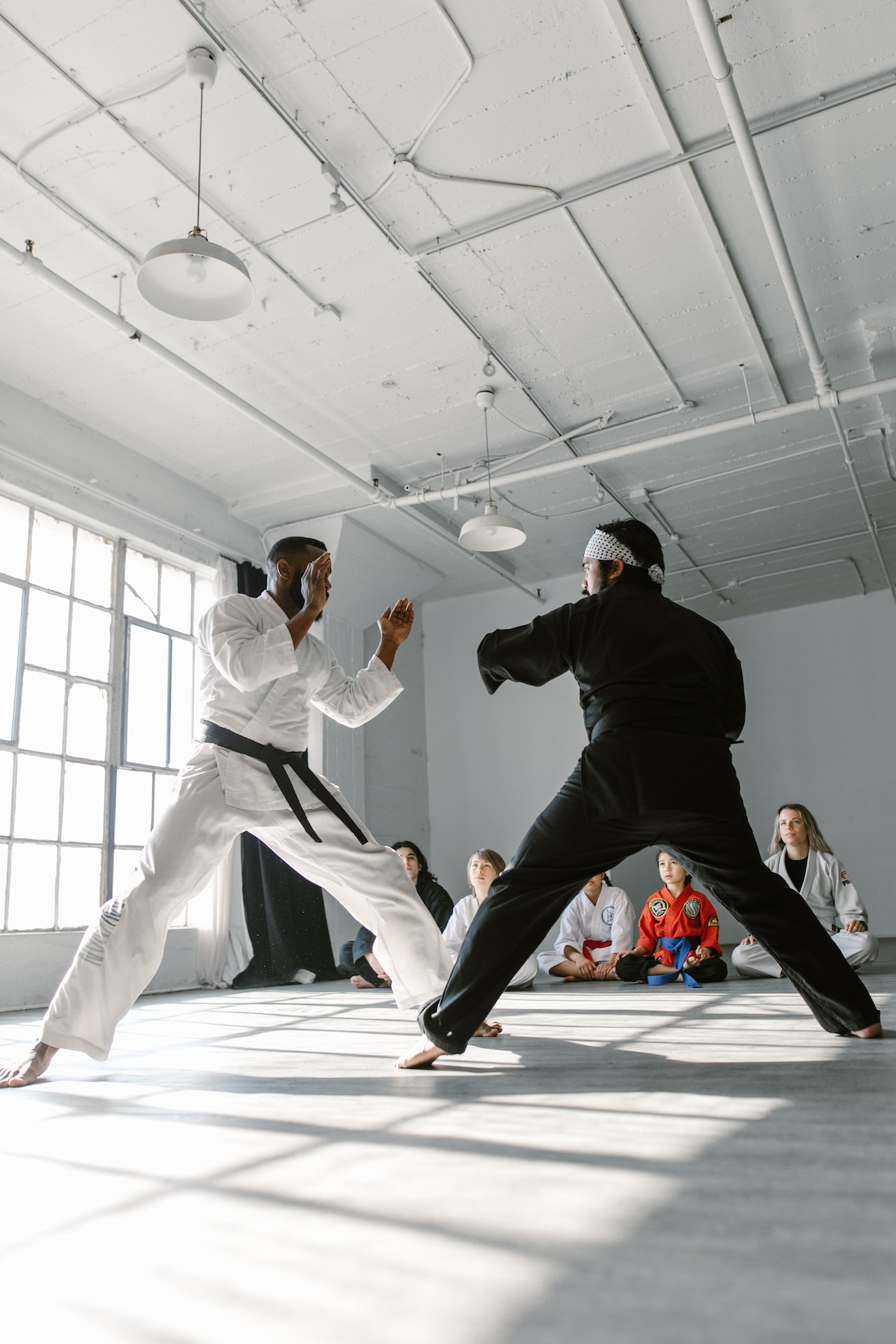How Lucid Dreaming Can Help Athletes
Conditioning, drills, strength training, and eating right are all well-known ways for athletes to try to get better. Every athlete knows that a big part of competitive sports is always looking for "that extra edge" over the other teams.
One must remember, though, that life has two parts: being awake and being asleep. Those who only do the above steps to improve their athleticism are only working on them when they are awake. In fact, the hours an athlete spend lucid dreamingcan also help him or her get better at sports.
What Is Lucid Dreaming?
Yes, sleep gives the body a chance to rest and heal, but it can also give an athlete a chance to work on his physical and mental skills in a perfect setting that he has made himself. How could something like that be possible? In two words, being aware of your dreams
People who can lucidly dream are in charge of their dreams. In lucid dreams, the dreamer realizes that he or she is dreaming and can use that knowledge to change the dream in any way they want.
Do you start to see how this could be a very useful way to improve skills? For athletes, this means that they will have more time to practice sensory-motor skills and prepare mentally before a competition. We'll talk about these implications in more detail in a bit, but first, let's make sure we understand some important things about lucid dreaming.
Lucid dreaming is an "altered state of consciousness" (Dement 271) that is different from normal dreaming in that the dreamer can judge and think, using more awareness than he or she would in a normal dream.
It happens during REM sleep, which is called "Rapid Eye Movement" sleep because the eyes move quickly and often.
During REM sleep, the brain is still very active, but some motor neurons in the brain stem are turned off to stop the sleeper's body from moving (Dement).
This combination of an active brain and an inactive body is what makes lucid dreaming different from wakeful imagery or visualization. Even though the body's muscles are actively inhibited in REM sleep routine, the neural messages sent to them in dreams can be just as strong as when the body is awake.
So, in some ways, doing things in lucid dreams can be almost as good for improving physical skills as doing things in real life.
Also, ordinary dreams are often forgotten, but the memory of lucid dreams seems to be the same as the memory of waking life. This makes it easier for the athlete to use what he learned in his dreams in the real world.
Motor Skill Training
Lucid dreaming is a great way for athletes to work on their skills because "imagery rehearsal may work to improve motor skills by strengthening the neural pathways used to elicit the patterns of movement that are required by the skill."
Dr. Stephen LaBerge, a well-known expert on lucid dreaming, calls this process "cognitive coding." In this process, the person makes a mental map of the skill and how to use it.
This mapping is best done in lucid dreams because the dream world depends less on sensory information and processing than the waking world. So, the dreamer has more freedom to create the setting she wants.
This keeps her from getting distracted by the world around her and from doing what she wants to do.
According toLigaDeportiva, this can help an athlete improve sensory-motor skills.
Like in the real world, doing the same thing over and over again strengthens the "muscle memory" of the activity, which helps the athlete improve her movement.
Athletes can also learn completely new moves by dreaming in a lucid state. Athletes can "practice doing movements for which their bodies are not yet physically ready, setting up neural and mental models for skills so that the movement models will be ready when the muscles are."
Improvements in these new skills may be seen before the athlete even tries them out in the real world, because good changes in a technique can often be seen from one training session to the next.
So, the sleeper's dexterity in the dream world gets better with practice, just like it would in the real world.
This effect is especially clear when studying supernatural dream behaviors like flying. Even though the skills needed to fly don't exist in the real world, the dreamer can still show the same steps to mastering the action: practice, repetition, and improvement over time.
Mental Training
Athletes can train their minds while lucid dreaming, which can be just as helpful as training their senses and muscles. It works well for mostly the same reason: the dreamer can make his own world, which keeps him from being distracted and lets him concentrate fully.
So, lucid dreaming can help an athlete deal with any performance anxiety and gain confidence for situations that could happen in real games.
Cut Back On Caffeine
Getting less caffeine can not only help you sleep better, but it can also help you fall asleep faster.
When you drink alcohol, you may have less REM sleep and take longer to fall asleep. If you don't get enough REM sleep, you'll be cranky and tired. So, you should stay away from alcohol at all costs.
Some Athletes Are Very Good At Lucid Dreaming
There are details about athletes, boxers, golfers, and other athletes who can control their dreams. They also thought that lucid dreaming was a big part of why they were successful.
Kim Jones
Kim Jones is an American who used to run marathons but then stopped. She was the third-fastest woman to run a marathon in 1991.
At age 31, she had a very clear dream. She said that she was just going along in the New York City Marathon. She had seen floating hills, people running by, and people running without pain. She kept her dream with her until she was 49 years old.
During her lucid dreams, she had a clear picture of herself running smoothly and without any problems. This made her feel better, stronger, and more sure of herself in real life. Jones also wrote a rare sports book called "Dandelion Growing Wild."
Jack Nicklaus
Jack Nicklausis a pro golfer and also makes golf courses. He is a lucid dreamer and one of the best golfers of all time. At one point, he fell into a deep depression that hurt his career.
The next day, he tried it again, and this time everything worked. So he was fully aware of his dream about his golf club. So, he said that his success was due to lucid dreams that made him better at his game overnight.
Floyd Patterson
Floyd Patterson was an American heavyweight champion boxer who worked as a pro. He also has very clear dreams. He also talks about what he thinks about lucid dreams. He says that LD helps him a lot with his great performance.
People Also Ask
What Triggers Lucid Dreams?
Later research showed that lucid dreaming often happens when there is a change in brain wave activity in the outer layer of the brain, which is a sign of high arousal. The dorsolateral prefrontal cortex, where working memory, planning, and abstract reasoning are done, maybe where dreaming is recognized.
Is It Okay To Have Lucid Dreams?
Most people think that lucid dreaming is safe, but people with mental healthdisorders may face some risks. Problems sleeping are one of these. Since lucid dreaming techniques are meant to wake you up, it can be hard to get enough sleep.
Are Lucid Dreams Rare?
In general, lucid dreaming doesn't happen very often. Only about half of the general population has ever had a lucid dream; about 20% of people have lucid dreams once a month, and only about 1% of people have lucid dreams several times a week.
Conclusion
Lucid dreaming is a great technique that helps people a lot, whether they are marathon runners, boxers, heavyweights, or anything else. By learning or getting good at lucid dreaming, athletes gain confidence by using their dreams to get where they want to go.
Lucid dreaming helps you focus, get to know yourself better and heal mentally and emotionally. It helps us in a lot of different ways.
If you think about it, learning how to lucid dream is just like learning how to play a sport.
Both of them have to drive, concentrate, follow rules, and mostly practice. So, if you want to be a good lucid dreamer and athlete, you have to work hard every day.

